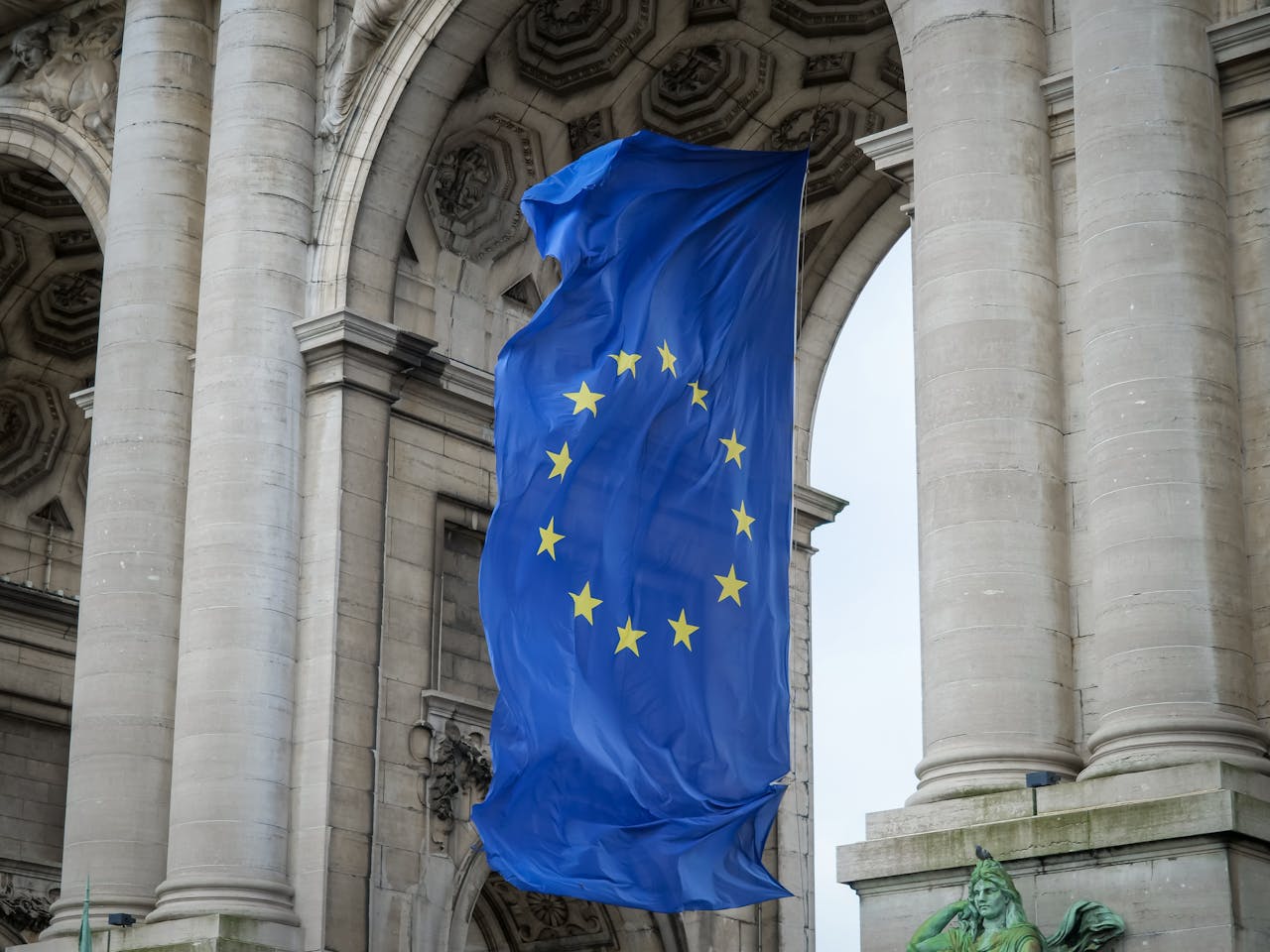In today’s fashion industry, traceability and transparency have become crucial factors driving consumer choices and shaping brand reputations. With the birth of the Digital Product Passport regulation and the proposed requirements for companies, traceability and transparency became the center of discussion.
However, before we dive deeper into what traceability and transparency mean for the companies operating in the fashion industry, let’s quickly go over what these terms stand for.
Traceability refers to the ability to track and trace the journey of a product throughout its supply chain, from raw materials to the finished garment.
On the other hand, transparency involves providing clear and accessible information about a fashion item’s origins, production processes, and ethical practices.
Together, traceability and transparency aim to
- Empower consumers to make informed decisions,
- Promote sustainable and ethical practices,
- Combat issues like counterfeiting, labour exploitation, and environmental harm.
In this article, we dive into the significance of traceability and transparency in the fashion industry, exploring their impact on consumer trust, social responsibility, and the future of sustainable fashion.

Image by Ksenia Chernaya. From Pexels
Traceability and the Digital Product Passport
With the rising complexity of the supply chains across industries and the increased consumer need to know about the product’s provenance, the European Commission has proposed a new regulatory framework, the Digital Product Passport regulation, in March 2022.
The digital product passport (DPP) was invented to address a growing need for enhanced transparency, traceability, and authenticity in various industries. One of the aims is to provide a comprehensive and secure digital record of a product’s lifecycle, from its creation to its end use. It is also a part of the more extensive initiative, the EU Green Deal, aimed at making the EU climate-neutral by 2050.
However, although at first sight, the regulation may come across as only requiring companies to comply with regulation with no visible benefits, the DPP can also contribute to improved business operations.
Here are some of the main business benefits in relation to the Digital Product Passport regulation:
Counterfeiting and Fraud
Counterfeiting and product fraud have been persistent issues across industries, leading to financial losses for businesses and risks to consumer safety.
The DPP was designed to combat these problems by creating a verifiable and tamper-proof digital record that can authenticate the origin and authenticity of products.
Supply Chain Management
Modern supply chains have become increasingly complex, involving multiple stakeholders, geographical locations, and stages of production.
This complexity makes it challenging to ensure transparency and traceability. The DPP was developed to improve supply chain management and provide a centralized repository of product information, enabling stakeholders to easily track and verify product origins, components, and movement.

Image by David Vives. From Unsplash
Consumer Demands for Transparency
Consumers today are more conscious of the environmental and social impact of the products they purchase. They expect transparency regarding a product’s sourcing, manufacturing processes, and ethical standards.
The DPP was invented to meet this demand, empowering consumers with access to detailed product information and enabling them to make informed choices aligned with their values.
As a result, companies providing the demanded information can expect increased consumer trust and loyalty.
Sustainability and Circular Economy
The DPP supports sustainability by providing information on a product’s lifecycle, materials used, and environmental impact.
It enables businesses and consumers to adopt more sustainable practices by facilitating product recycling, refurbishment, and proper disposal at the end of its lifecycle.

By leveraging digital technologies and creating a secure and standardized system, the DPP aims to revolutionize how products are traced, authenticated, and managed across various industries.
Why the Fashion Industry?
In particular, the fashion industry faces several significant issues across its supply chain. As mentioned before, some of the biggest challenges include:
- Supply chain transparency
- Labour exploitation
- Environmental impact
- Fast fashion and overconsumption
- Supply chain complexity
- Counterfeiting and intellectual property infringement
All of these have dire consequences for brands, the planet and consumers. Addressing these challenges requires collaborative efforts from fashion brands, retailers, manufacturers, and consumers.
Implementing transparent and responsible sourcing practices, adopting more sustainable materials, and embracing the circular economy model are vital steps towards creating a more sustainable and ethical fashion supply chain.
Additionally, leveraging digital product passports can enhance traceability in fashion, authenticate products, and promote fashion supply chain transparency throughout the supply chain.
In return, this will increase brand reputation and customer loyalty and help companies optimize their supply chains better, decreasing recalls and revenue loss.
Can You Benefit from Traceability?
Besides helping companies comply with the upcoming Digital Product Passport regulation, traceability can benefit fashion brands across various aspects of their operations.
Here is the outline of traceability’s most common ways to help fashion brands.
Supply Chain Transparency
As mentioned before, traceability in fashion provides fashion brands with a clear view of their supply chain, allowing them to track the journey of their products from raw materials to finished garments.
Fashion supply chain transparency thus helps identify potential bottlenecks, risks, and inefficiencies in the supply chain, enabling companies to make informed and proactive decisions and optimize their supply chain processes.
Ethical Sourcing and Labour Standards
Traceability allows fashion brands to verify the origins of raw materials, ensuring they come from ethical and sustainable sources. Brands can track labour conditions at various stages of production, ensuring compliance with fair labour standards and social responsibility commitments.
This helps build trust with consumers and ensures brands align with ethical values.
Quality Control and Product Authenticity
Moreover, traceability helps brands ensure product quality and authenticity throughout the supply chain. By tracking and verifying each production stage, brands can promptly identify and address any quality issues.
Additionally, traceability solutions and digital product passports enable brands to authenticate their products, protecting against counterfeiting and preserving brand reputation.
Sustainability and Environmental Impact
Traceability supports fashion brands in assessing and reducing their environmental impact. By tracking the origins and processes involved in manufacturing, brands can identify opportunities for:
- Sustainable sourcing
- Energy-efficient production methods
- Waste reduction
- Responsible disposal practices
As a result, traceability enables brands to make data-driven decisions to improve their environmental footprint.

Image by Thomas Richter. From Unsplash
Consumer Trust and Communication
Consumer trust and communication are also essential elements of good traceability practices.
Traceability enhances transparency and empowers brands to communicate their responsible practices to consumers. By providing information about:
- Sourcing,
- Manufacturing processes,
- Certifications, and
- Sustainability efforts,
brands can build trust, engage conscious consumers, and differentiate themselves in a competitive market.
Traceability strengthens the brand-consumer relationship and fosters loyalty.
Recall Management and Product Safety
In the event of a product recall or safety issue, traceability enables brands to:
- Identify affected products quickly
- Trace their distribution
- Take necessary corrective actions
This ensures consumer safety, minimizes reputational damage, and demonstrates the brand’s commitment to customer well-being.
What are the actions fashion companies can take?
When talking about traceability and transparency, as well as complying with the digital product passport regulation, there are some actions the fashion companies can take to ease the process and ensure a timely response to the regulation:
- Assess supply chain and identify key data points – Fashion companies should thoroughly assess their supply chain to determine critical data points that need to be captured and tracked.
- Collaborate with supply chain partners – Collaboration with suppliers, manufacturers, and other stakeholders is essential for successful implementation. Fashion companies should work closely with their partners to ensure they understand and support the adoption of DPPs.
- Adopt DPP technologies – Fashion companies should invest in digital solutions and technologies that enable the implementation of DPPs. This may include adopting traceability solutions, such as PSQR’s Saga, able to facilitate data capture, storage, traceability throughout the supply chain, RFID tagging, QR codes, and more.
- Establish data standards and protocols – It is crucial to establish standardized data formats, protocols, and guidelines for capturing and sharing information within the DPP system. This will ensure consistency, compatibility, and seamless integration across different supply chain stages.
- Educate and train stakeholders – Proper education and training programs should be conducted to ensure stakeholders understand the importance of traceability and how to use the DPP system effectively.
- Communicate with consumers – Fashion companies should communicate the benefits of DPPs and traceability to consumers. Transparently sharing information about the product’s journey and sustainability efforts helps build consumer trust and loyalty.
- Monitor and evaluate performance – Regular monitoring and evaluation of the DPP system’s performance are crucial. Fashion companies should analyze data, assess the effectiveness of traceability measures and make necessary adjustments to improve efficiency, address gaps, and ensure compliance with industry standards and regulations.

Conclusion
A regulated fashion supply chain is not yet a requirement but a consumer request.
However, many initiatives and proposals have been placed asking for official regulations. The digital product passport seems to be paving its way into the fashion industry.
Many fashion companies have joined the sustainability movement and implemented traceability solutions into their existing systems.
By taking the actions covered in this article, fashion companies can effectively implement the digital product passport and traceability thereby:
- Enhancing supply chain transparency,
- Promoting ethical practices,
- Fostering consumer trust
- Driving sustainability in the fashion industry.
If you’d like to learn more about how PSQR’s solution can help you achieve the DPP requirements, please contact us.
To read more about the DPP regulation, download our Digital Product Passport ebook.






